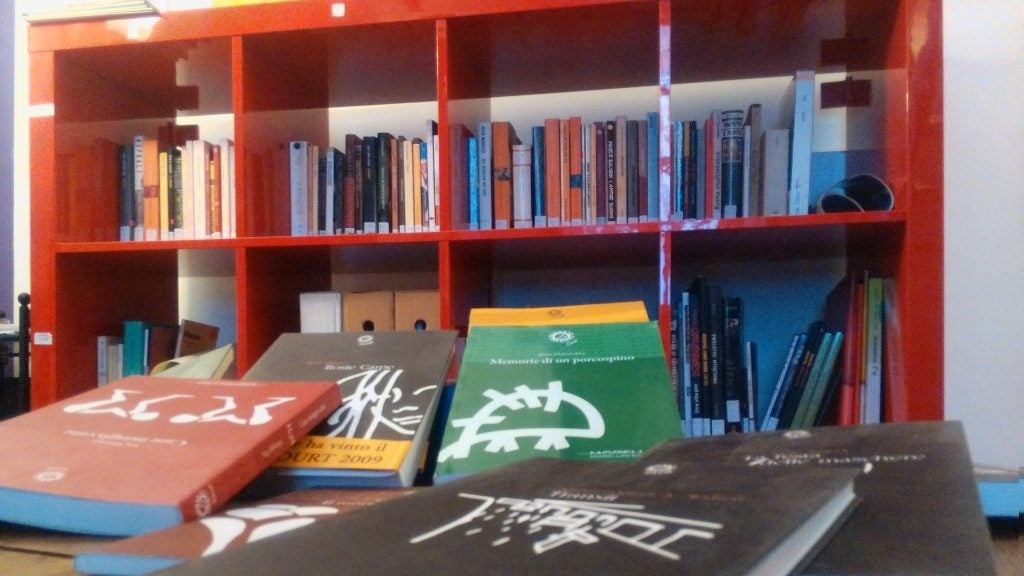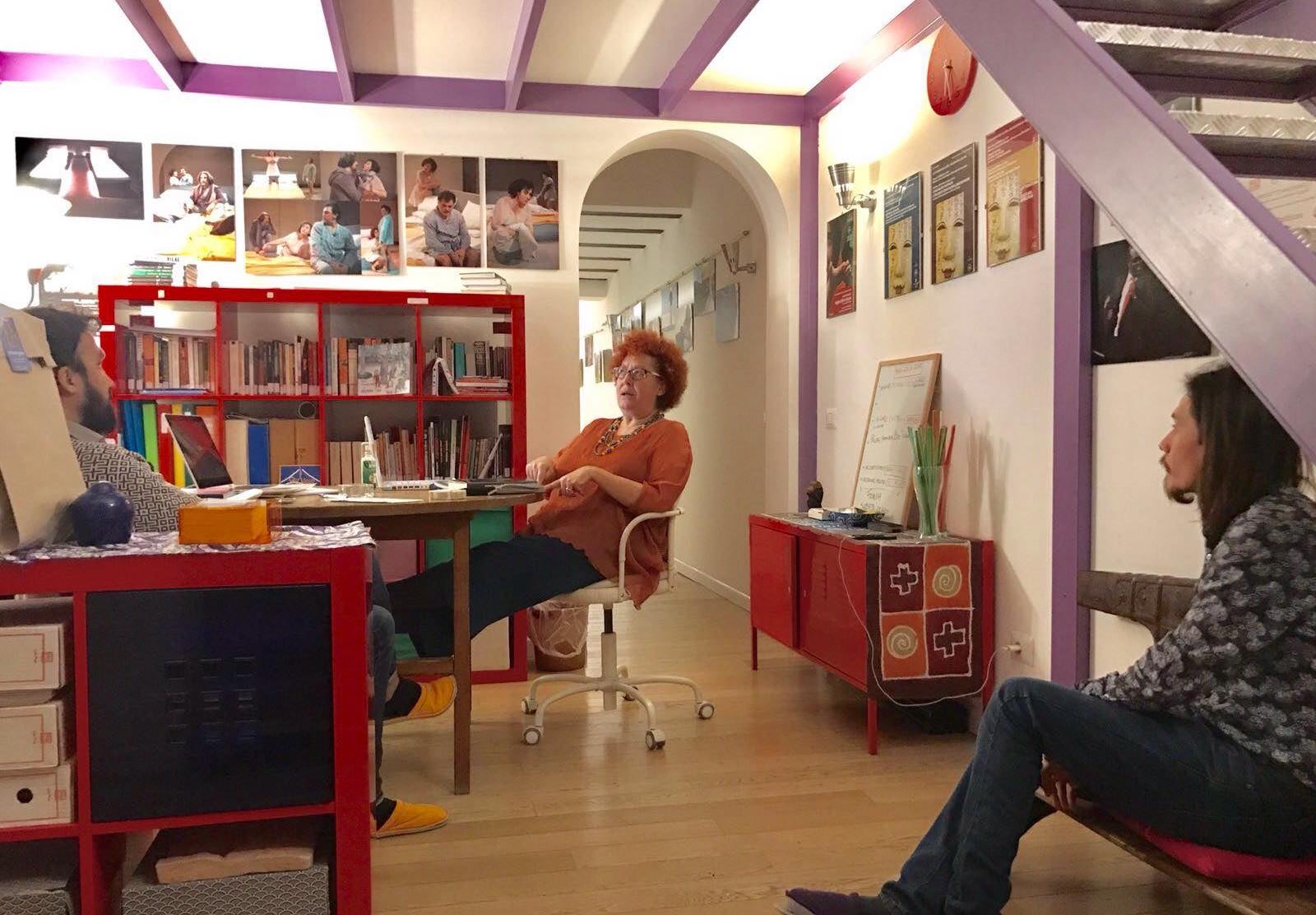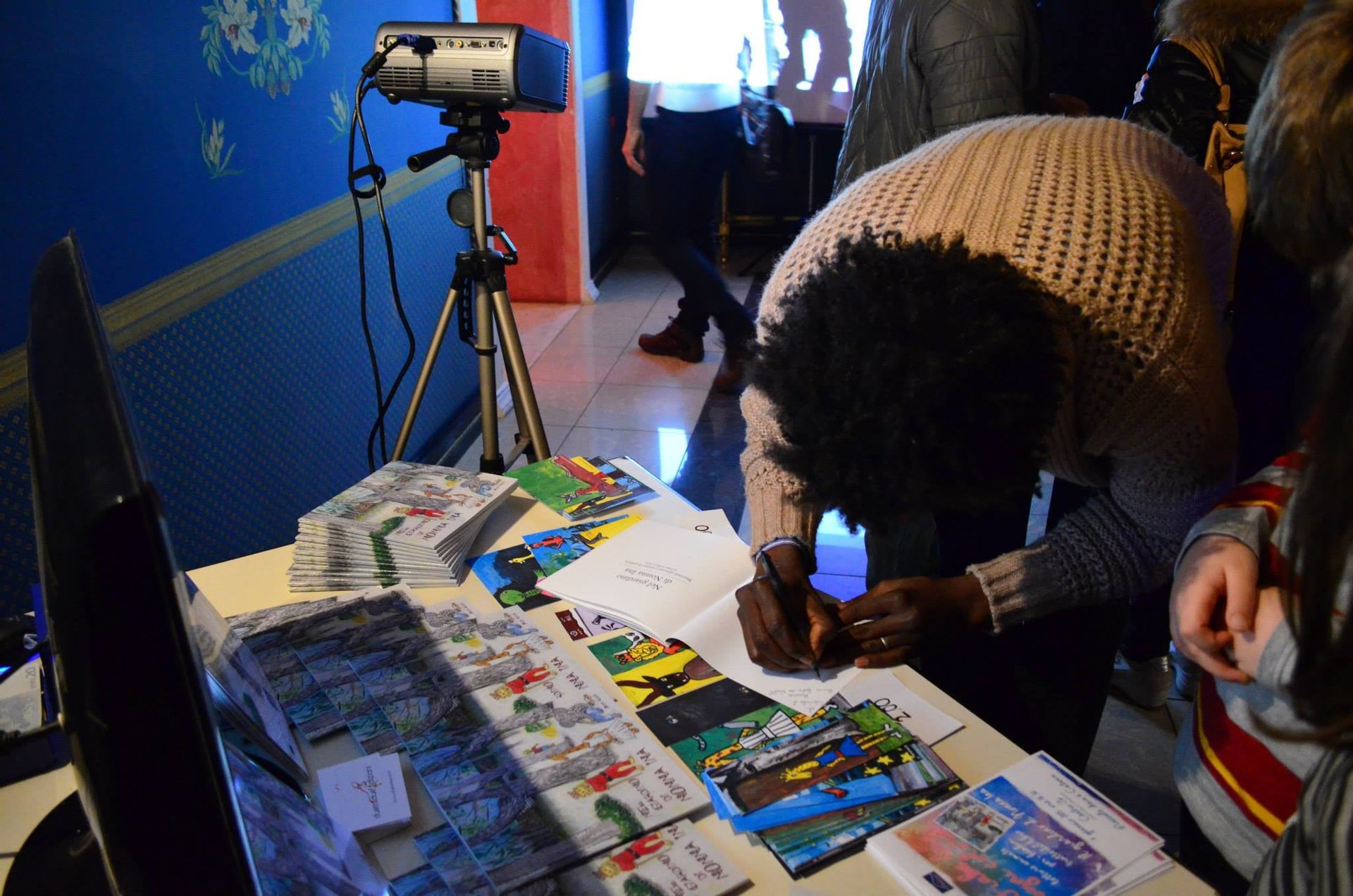The small library in Sicily that helps Italians understand African migration to Europe
The months that followed the establishment of a far-right government in June 2018 have been the toughest for immigrants in Italy.


The months that followed the establishment of a far-right government in June 2018 have been the toughest for immigrants in Italy.
The majority coming from the African continent, migrants have faced an increasing crackdown on their asylum rights, peaking last December with the approval of a law proposed by Matteo Salvini, former interior minister and leader of anti-migrant party ‘The League’. The new law removes the option of humanitarian grounds for granting protection to refugees—asylum that is not tied to political persecution or war. He also called for an end to Sicily turning into ‘the refugee camp of Europe’.
Among the frontlines of the Mediterranean migration crisis, about 500,000 people have landed in the past five years via the dangerous sea route from Libya, raising safety concerns among Italians.
In this hostile context Emanuela Pistone, a Sicilian resident of Catania, decided to open the Small African Library (Piccola Biblioteca d’Africa) in the island’s second-largest city, which is both a temporary passage and home to many migrants. Opened in 2014 as a space to challenge stereotypes about African cultures and a stage to give voice to migrants’ own narratives, today it represents one of the few hubs where locals and asylum-seekers can learn from each other, creating human bonds. “There’s so much Western societies ignore about Africa’s cultural contribution to the world, beginning with literature,” said Pistone, a theater director specialized in African plays.
The project was launched with the donation of about 200 books from her private collection, containing some of the pillars of pan-African literature—from Chinua Achebe to Leopold Senghor and Wole Soyinka—but today it gives priority to new, contemporary voices.

Although at first it only attracted university students of African literature and humanitarian workers of migrant help centers, today the library welcomes any curious citizen willing to get to know the newcomers, beyond news headlines. Andrea Maccarrone, a 29-year old musician from Catania, contributed to the establishment of the library, motivated by the idea of spreading knowledge and empathy about the journeys of his friends.
“We began offering public readings [of the library’s books] that would turn into small plays for educational purposes. We noticed that it worked as a genuine way to bond with the locals,” Maccarrone explains.
In the past five years, this cultural space has encouraged a different approach to books, proposing an interactive participation of its members through group readings, writing workshops and meetings with authors, as well as live performances of the tales to make attendees feel part of the narration. It has also given room to hidden local talents, that would otherwise pass unnoticed elsewhere.

Recently, the library has staged excerpts from the book ‘Black Storks’ by Eritrean refugee and activist Abdelfetah Mohamed. Born in the Wad Sharife refugee camp in Sudan, Mohamed landed in Sicily from Libya in 2011, after the first uprisings in the country. He was a guest at the CARA of Mineo, dubbed Europe’s largest refugee camp until its closure last July, before becoming a humanitarian aid worker, assisting fellow African refugees landing monthly at the port of Catania, the city he now calls home.
“The black stork is a bird that constantly migrates between Europe and Africa. It’s a metaphor about the men who leave our continent to reach better life conditions,” Mohamed says. His first-person narrative tackles the modern search for identity through the act of migrating, portrayed as a basic human right.
“Books and education represent the only way to effectively fight ignorance, prejudice and hate. A society without sensitivity has no opportunity to develop,” the author adds.
Among the volunteer storytellers in charge of his book’s public reading, Tene Touré was the most personally touched by the words she tried giving life to, which reminded her of her own journey. Landed in Sicily in 2016, at age 16, she ran away from her native Ivory Coast after her relatives threatened practicing FGM on her.
“There are certain challenges you can’t escape from when moving to a new country to save your life. But I was aware of that and willing to fight,” she explains. “The first year was hard, but this cultural community helped me heal from my traumas and create a family atmosphere.”
The library’s next target are younger generations. In 2015, Senegalese artist Baye Gaye published, in partnership with the Small African Library, his book ‘Inside Grandma Ina’s Garden’, a collection of illustrated fairy tales from his country’s tradition, which came to life during a writing and painting workshop with children aged 6-11, organized at the library.
“This project was born to help Sicilian children discover and respect other cultures, and think of diversity as personal enrichment,” Gaye says. “Now more than ever we need to recognize the healing benefits of words to empower each other, and sharing stories is the first step towards that goal.”
Sign up to the Quartz Africa Weekly Brief here for news and analysis on African business, tech and innovation in your inbox